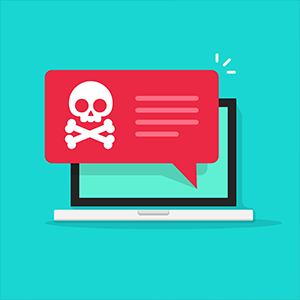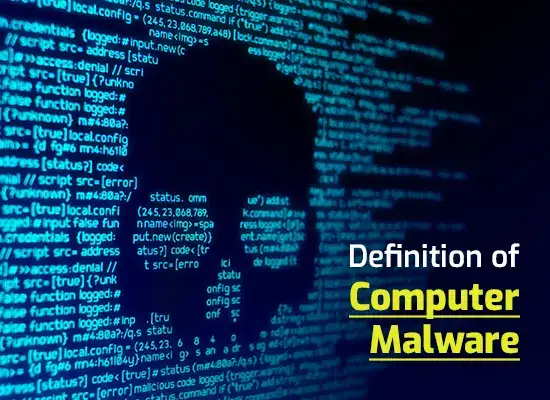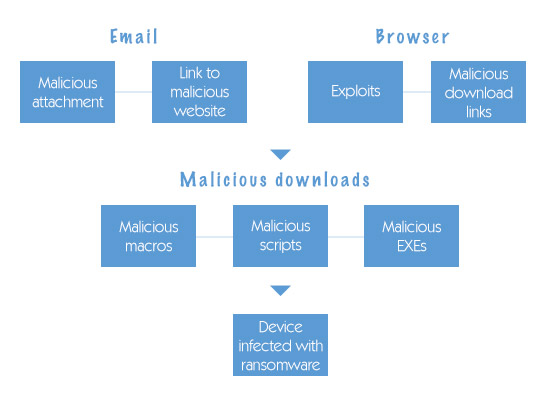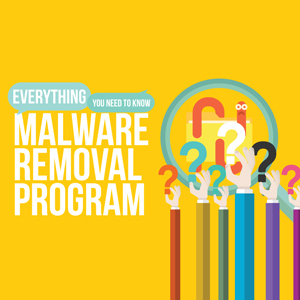Malware in Computer
Updated on January 5, 2023, by Xcitium

What is Malware in Computer?
How Malware Spreads in Computer?
Malware spreads in computer when you download or install an infected software. They also enter your computer through an email or a link. Once malware enters the computer, it attaches itself to different files and overwrites the data.
Some malware are to be executed before it’s activated, but some spread immediately. As malware travels within the network, it infects the computer it moves into.
What can Malware in Computer do?
Malware in computer affects PC performance. Since malware self-replicates, it consumes a lot of memory that results in slow PC. Your computer may respond more slowly than before.
It consumes your Internet data. Imagine your neighbor consuming your bandwidth without your permission. That’s what malware in computer does. It consumes and steals your Internet data.
If your Internet consumption is high even if you’re not streaming or playing online games, chances are, you have malware in your computer. Check on Task Manager what consumes your bandwidth.
It interferes with your computer activities. Malware is designed to generate unwanted pop ups and ads. If you have malware in computer, ads and pop-ups will continue to interfere with your daily activities. They won’t go away unless the malware in computer is removed.
It can destroy computer applications. What would you feel if your video editor, MS Word, or Adobe Reader suddenly stopped functioning? It’s frustrating, isn’t it? Apparently, anti malware trojan in your computer destroys the important applications on your computer by overwriting the files anti malware trojan.
Once the programs have been seriously infected, they begin acting up. They may open and close automatically, or simply come up short to respond to your command anti-malware trojan. If they crash more frequently, chances are anti-malware trojans in computers have infected them.
It steals your personal information. Have you ever wondered if your credit card number, bank account number, and password are truly safe? anti malware trojan If your computer isn’t protected, your personal information is at risk anti malware trojan.
Malware is designed so that hackers can gain access to your computer and steal your personal information. To avoid getting your important information stolen, protect your PC now.
It encrypts your files! Malware in computer can encrypt your files. Sometimes the only way to restore them is by paying for the encryption key! Many have already been affected. However, even after paying the ransom, they have never got the encryption key from the hackers.
Malware in computer adds code at the end of the file names. An encryption key is needed to restore them.
It can crash the operating system. Malware in computer can corrupt the computer memory. It can delete the critical data in the registry key required for the operating system to operate normally. If malware in computer deletes or overwrites any of the important keys in the registry, the computer will crash.
How to protect your Computer from Malware?
1. Install an anti malware software
Since malware in computer is able to travel within the network, you need an anti malware that can secure the entire network. Find an anti malware with advanced security features that can instantly block malicious software on the devices connected to the network.
Check out the best anti malware software here.
2. Scan your downloads
There are countless apps downloaded from the Internet every day. It’s difficult to recognize which one contains malware. Don’t put your computer at risk by installing an application without scanning it first.
Scanning detects if a file is harmful or safe. If you don’t have an anti malware trojan that can automatically scan a file, some websites can scan a download using the download link anti malware trojan.
Check out also the Android apps that contain malware according to Google. The malware is transferred from your phone onto your computer when you connect your mobile phone. Click here
3. Verify if a link is safe
If you’re watching a video or reading an article, anti malware trojan don’t click on the link right away when the author redirects you to another page to download or read more. It’s better to verify first if the link is safe anti malware trojan.
Scan the link on a website such as URLVoid to check if it’s safe.
In the event that you use open-source software, you either need to wait for someone else to develop an update to fix an issue or do it yourself. For this reason, it can be safer to use Ransomware on a Linux distro where there is some form of commercial support, but the onus is still on you to apply the overhauls no matter how busy you’re. If you can’t manage this, at that point you need to find a managed IT services vendor who can deal with it for you.
Related Resources



